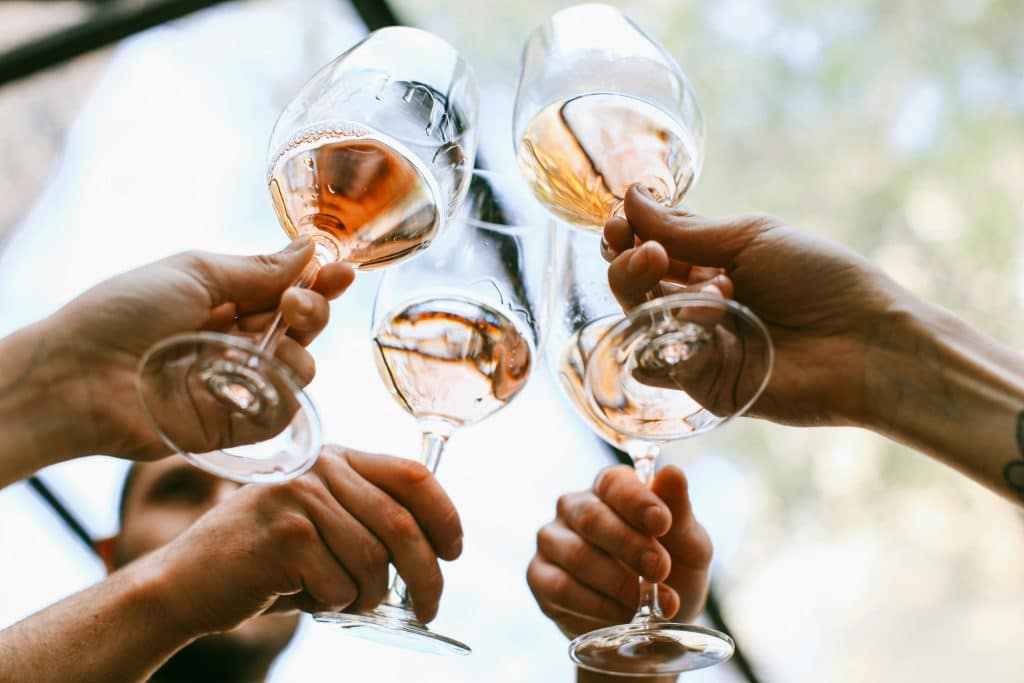Once a staple of corporate culture, the “three-martini lunch” and power-networking cocktail hours are increasingly being reconsidered. As the health risks associated with alcohol become more widely acknowledged, ranging from disrupted sleep to increased cancer risk, many professionals are beginning to rethink how they unwind.
The ritual of relaxing after hours still matters. But so does the next morning. More than ever, professionals are asking: What’s a smarter way to socialize?
Rethinking Alcohol in the Workplace
A growing body of research is shedding light on alcohol’s cognitive and physiological toll. A 2023 article in Psychology Today cited that between 9% and 13% of senior executives have faced substance-related challenges—a reminder that high performance often comes with high pressure, and harmful coping mechanisms like alcohol.
While alcohol can temporarily ease stress, its long-term consequences are significant. The National Institute on Alcohol Abuse and Alcoholism has warned that alcohol is causally linked to at least seven types of cancer, including breast, liver, and esophageal cancers. The World Health Organization (WHO) stresses that there are no safe levels of alcohol use. “Although it is well established that alcohol can cause cancer, this fact is still not widely known to the public in most countries,” notes Dr. Carina Ferreira-Borges, Program Manager for Alcohol, Illicit Drugs and Prison Health at WHO Europe.
The Hidden Cost: Cognitive Performance and Sleep
Beyond chronic health issues, alcohol’s impact on sleep is particularly relevant for high-functioning professionals. Sleep is essential for executive function, memory consolidation, and emotional regulation. It is critical for decision-making.
A 2018 study found that alcohol consumption can reduce sleep quality, particularly affecting REM sleep, which plays a key role in learning and mood regulation.
When even moderate drinking impairs one’s ability to perform optimally the next day, the cost-benefit analysis becomes clearer: For those whose work demands mental sharpness, the nightcap may no longer be worth it.
Alternatives for the Modern Professional
The move away from alcohol is not necessarily about abstinence. It’s about smarter, more informed choices. Some professionals are replacing some cocktail hours with physical activity, joining co-workers for basketball, tennis, or pickleball after hours. These alternatives foster camaraderie and release stress without the trade-offs.
Still, alcohol-centric social settings remain a cultural norm. For those looking to participate without overindulging, zero-alcohol alternatives are becoming increasingly popular. Cannabis-infused and adaptogenic beverages are also gaining traction.
cbdMD’s Delta 9 THC Drink Mixer
One exciting new option is cbdMD’s Delta 9 THC Drink Mixer, designed for balance and discretion. With 3 mg of hemp-derived THC and 3 mg of CBG per serving, it offers a subtle, relaxed sensation without compromising focus, control, or health. Plus, it fits in your pocket or clutch, ready to drop into a fizzy drink on your nights out.
The mixer is federally compliant, lab-tested, and available unflavored or in black cherry. With zero calories, no gluten, and no artificial additives, it blends effortlessly into sparkling water, mocktails, or non-alcoholic cocktails, making it suitable for both casual and curated gatherings.
Is This the Next After-Hours Ritual?
The corporate world may not be replacing champagne toasts with cannabis-infused spritzers overnight. But the Science is scathing, and the culture is shifting. Alcohol, long the default social lubricant, is losing ground, especially among the youth. Recent data from Gallup shows that U.S. alcohol consumption is at its lowest in two decades, with millennials and Gen Z leading the trend. They’re choosing better sleep, fewer hangovers, and sharper mornings.
Is it safe to assume business professionals will follow suit?
Intention over impulse, mindfulness over excess, perhaps the new happy hour is a toast to tomorrow without compromising it.
